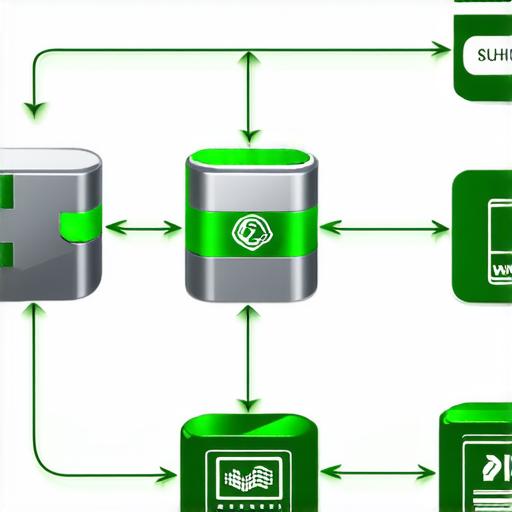What is Blockchain?
Blockchain technology was introduced in 2008 with the launch of Bitcoin, a decentralized digital currency. It is a distributed ledger that records transactions in a secure and transparent manner. A blockchain consists of blocks, which contain information about transactions that have taken place on the network. Each block is linked to the previous one using cryptographic algorithms, creating an immutable record that cannot be altered once it has been added to the chain.
Blockchain Applications in various industries
-
Financial Services: Blockchain technology is being used in the financial services industry for various applications such as payment systems, clearing and settlement, and trade finance. For example, banks can use blockchain technology to reduce the time and cost of cross-border payments by eliminating intermediaries.
-
Healthcare: The healthcare industry is using blockchain technology to improve data security and privacy. Medical records can be securely stored on a blockchain, making it difficult for hackers to access sensitive information. Additionally, blockchain technology can be used to track the supply chain of drugs, ensuring that they are distributed in a safe and ethical manner.
-
Supply Chain: Blockchain technology is being used to improve the transparency and efficiency of supply chains. By using blockchain, companies can track products from production to delivery, ensuring that they are authentic and have not been tampered with. This can help reduce fraud and increase consumer trust.
-
Identity Verification: Blockchain technology can be used for identity verification purposes. By storing personal information on a blockchain, individuals can control who has access to their data and ensure that it is being used in a secure and ethical manner.
-
Voting Systems: Blockchain technology can be used to create secure and transparent voting systems. By using blockchain, votes can be counted in real-time, eliminating the need for intermediaries and reducing the risk of fraud.
Benefits of Blockchain Technology
-
Decentralization: Blockchain technology is decentralized, meaning that it does not rely on any central authority to function. This makes it resistant to censorship and control by governments or other institutions.
-
Security: Blockchain technology uses cryptographic algorithms to secure data, making it difficult for hackers to access sensitive information. Additionally, once data is added to the blockchain, it cannot be altered or deleted, providing an immutable record that can be trusted.
-
Transparency: Blockchain technology provides transparency by allowing multiple parties to share data without the need for intermediaries. This makes it easier for individuals and organizations to verify information and make informed decisions.
-
Cost Reduction: By eliminating intermediaries, blockchain technology can reduce costs in various industries such as finance, healthcare, and supply chain management.
-
Efficiency: Blockchain technology can improve efficiency by automating processes and reducing the need for manual intervention. This can lead to faster processing times and increased productivity.
Real-life Examples of Blockchain Applications
-
Ethereum: Ethereum is a blockchain platform that allows developers to build decentralized applications (dApps) on top of the network. It has been used for various applications such as decentralized finance, supply chain management, and identity verification.
-
Bitcoin: Bitcoin is a decentralized digital currency that uses blockchain technology to enable secure and transparent transactions. It has become a widely recognized form of payment and has inspired other cryptocurrencies.
-
IBM Food Trust: IBM Food Trust is a blockchain-based platform that allows companies in the food industry to share data about their products, ensuring transparency and traceability throughout the supply chain.

FAQs
What is Blockchain?
Blockchain technology is a distributed ledger that allows multiple parties to share data without the need for intermediaries.
How does Blockchain work?
Blockchain works by using cryptographic algorithms to secure data and link blocks together in a chain. Once data is added to the blockchain, it cannot be altered or deleted.
What are some applications of Blockchain technology?
Some applications of Blockchain technology include financial services, healthcare, supply chain management, identity verification, and voting systems.
What are the benefits of using Blockchain technology?
The benefits of using Blockchain technology include decentralization, security, transparency, cost reduction, and efficiency.
Conclusion
Blockchain technology is a revolutionary innovation that has the potential to transform various industries by providing secure and transparent data storage. It offers numerous benefits such as decentralization, security, transparency, cost reduction, and efficiency.
